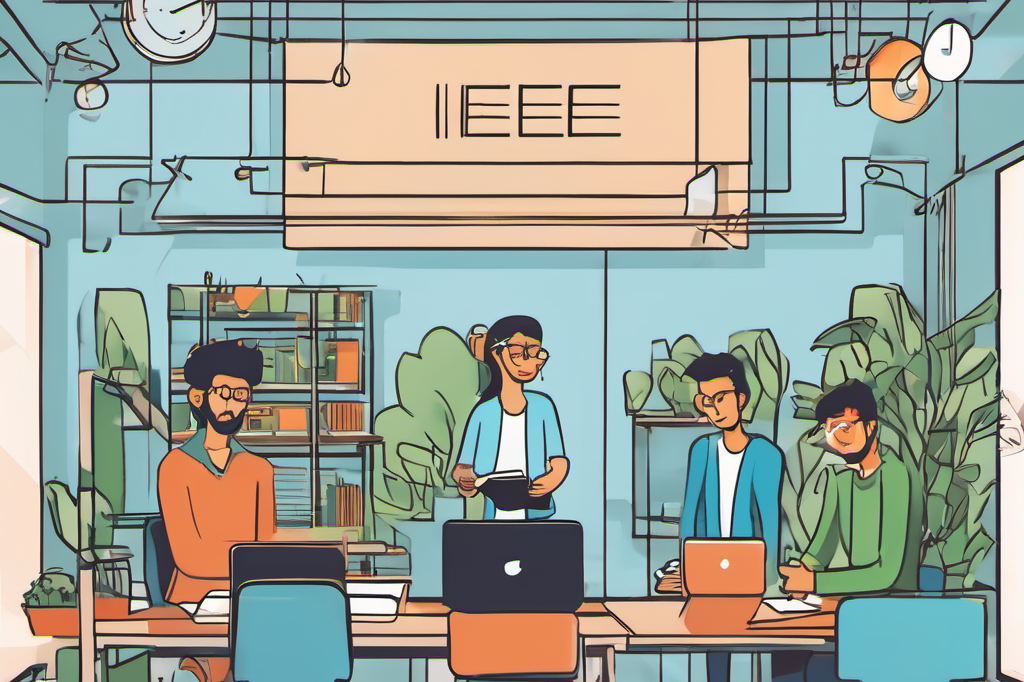SUSTAINABLE DEVELOPMENT WITH INDUSTRY 4.0
IEEE NSU Power and Energy Society Student Branch Chapter
SUSTAINABLE DEVELOPMENT WITH INDUSTRY 4.0
Oct. 13, 2021 - Category- Science & Technology
Writer: Ummi Salma Tonima - North South University-None
Published from: IEEE NSU Power and Energy Society Student Branch Chapter
The harmony between humanity’s need to produce and its desire to avoid ruining the world is constantly questioned and shattered. The subject of sustainability arises as a result of the disruptive new models that Industry 4.0 has demonstrated to the world, as well as the ever-expanding prospects for innovations, production, and improvements in the way organizations operate.
One of the major obstacles on the pathway to sustainable growth is the transformation of industrial manufacturing. Sustainable development is defined as a balance of long-term economic expansion and environmental regeneration. Sustainable development demands the use of environmentally friendly technology that is both efficient and adaptable to changing circumstances. Sustainable development has four dimensions: society, environment, culture, and economics, all of which are intertwined rather than distinct. Sustainability is a method of thinking about the future that aims to improve people’s quality of life by balancing environmental, social, and economic issues. In this situation, eco-technology can help with environmental conservation and restoration by combining engineering and ecological principles. Science and technology developments contribute to the achievement of Sustainable development targets by increasing the efficiency and efficacy of new and more sustainable development strategies. Some of the benefits of this development include investments in green technology, efficient and effective procedures, safer materials, and enhanced performance and outcomes.
The fourth industrial revolution, also known as Industry 4.0, when considering the future of employment, the economy, and the internet of things are becoming more widely utilized. These concepts all refer to the idea that technology is becoming more prevalent in our daily lives and will change the way we accomplish jobs. and it will have significant repercussions for how businesses operate. It is established by the combination of hardware, software, and humans to accomplish work. One of AI’s primary benefits is its capacity to transform huge and diverse data sets into enhanced information, which may assist increase speed, cost, and flexibility across the value chain. While the cost of technology such as AI is now expensive, it is expected to fall in the future, making companies less reliant on workers. Industry 4.0 is a contemporary manufacturing system powered by information technology (IT) and aimed at producing a sustainable society in the current world. Industry 4.0 has brought new technologies to manufacturing that produce maximum outputs while maximizing resource utilization (Kamble et al., 2018). This development of businesses is leading to a new century, one marked by more efficient manufacturing techniques. Collaborative industrial networks and optimized supply-chain processes to start, one with a new outlook on design and execution of production – there should also follow the question of how the unexpected and distinct environment allows for sustainable development. Industry 4.0 is transforming the way people manufacture, improve, and distribute their products.
Design, sales, inventories, scheduling, quality, engineering, and customer and field support are all part of Industry 4.0’s product life cycle and supply chain. Everyone provides knowledgeable, up-to-date, and relevant opinions on production, as well as some of the advantages of adopting an Industry 4.0 business model. It improves your competitiveness, growth in the face of disruptors like Amazon. Businesses such as Amazon work to improve their logistics and supply chain management. It makes it more attractive to the younger workforce. It makes teams stronger and more collaborative. Companies that invest in Industry 4.0 technologies may improve productivity, promote departmental cooperation, enable predictive and prescriptive analytics, and empower employees like operators, managers, and executives to make better decisions and manage their day-to-day tasks. It Enables potential concerns to be addressed before they become major difficulties. Predictive analytics, real-time data, internet-connected machinery, and automation can all help be more proactive when it comes to addressing and solving potential maintenance and supply chain management issues. Industry 4.0 technology supports the management and optimization of all elements of production and supply chain operations. It provides access to the real-time data and insights required to make better, quicker business choices, which may improve the overall efficiency and profitability of the establishment.
The idea of Industry 4.0 allows for a globally equal distribution of the benefits of digitalization in the industrial industry. There is little question that the workplace will change from what we know it to be. It also emphasizes that the fourth industrial revolution is context-dependent and that the effect could be different in a developing country compared to a developed country. Employers will increasingly attempt to arrange their employment contracts in order to meet the transition to a more flexible workforce in the future.
Written By
Ummi Salma Tonima
North South University
YOU MIGHT ALSO LIKE
June 6, 2023




